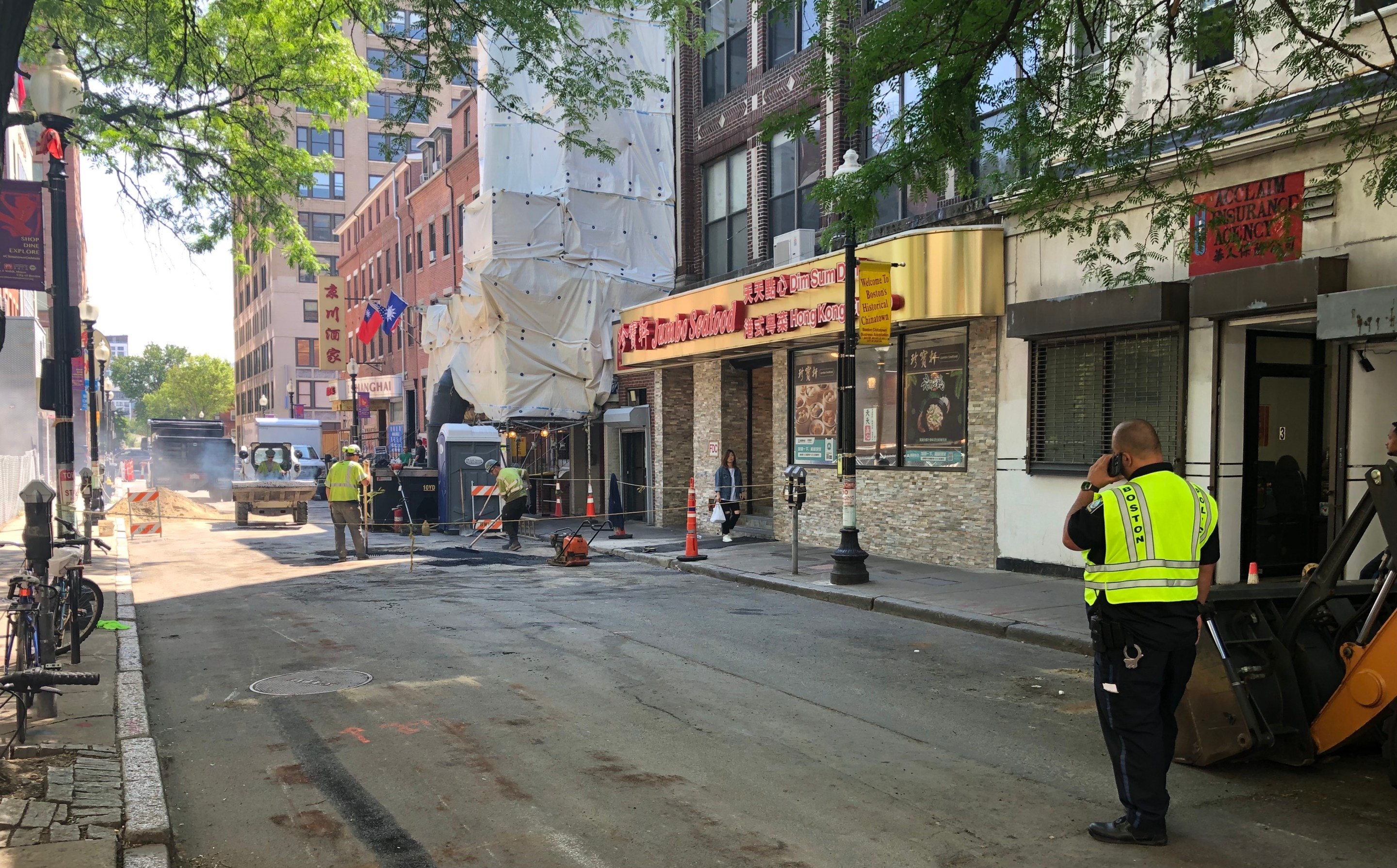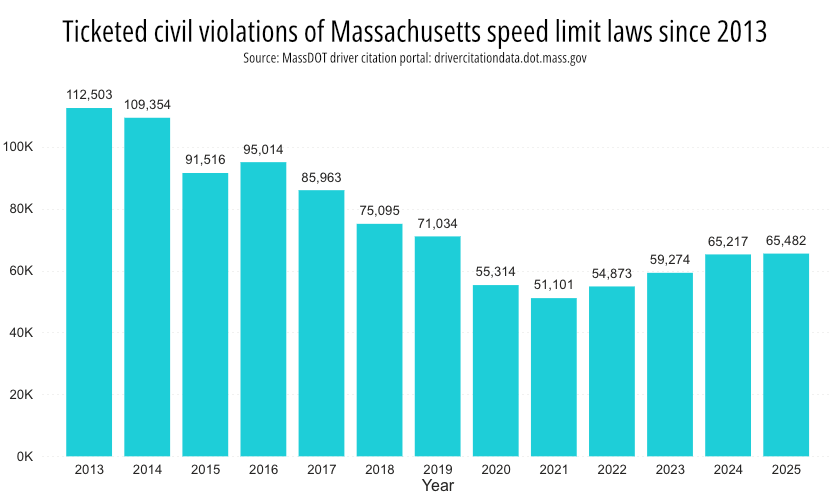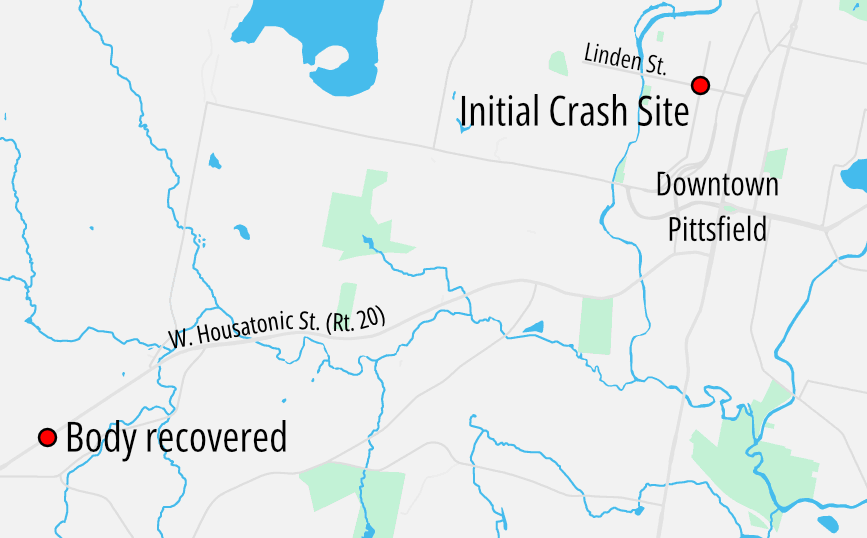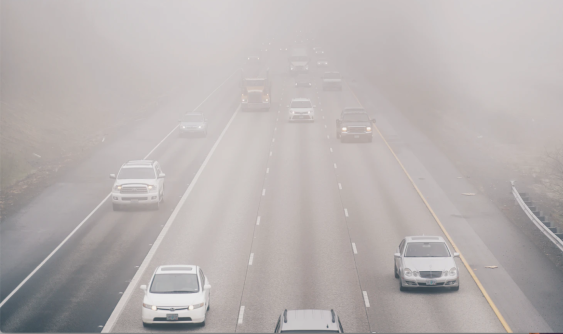Onerous rules that require Boston police to babysit roadway construction sites have delayed a crosswalk painting project near Oak Square for over 8 months, according to emails between City of Boston and MBTA officials.
As part of its accessibility program, the MBTA has been upgrading dozens of bus stops across its service area.
A project in Oak Square that's been in the works since 2021 was supposed to make sidewalk repairs and build new crosswalk ramps at two intersections along Washington Street to allow wheelchair-accessible access to bus stops on the Route 57 bus line.
Matt Shearer reported on the hazardous conditions of Oak Square's crosswalks in an August 2022 TikTok video, which included shots of the sidewalk construction work that was then underway.
"There are crosswalks, and then there's this monstrosity in Oak Square," reported Shearer, cutting to a shot of a haphazardly-painted column of stripes across Washington Avenue.
At the time, MBTA contractors were repairing sidewalks and installing new curb ramps nearby.
Nearly a year has gone by since then. The sidewalk work and new curb ramps appear to be complete.
But the final step of painting the crosswalks on Washington Street remains unfinished.
8 months (and counting) to paint a crosswalk
Anna Leslie, the Director of the Allston Brighton Health Collaborative, first flagged the issue in an October 2022 email to the MBTA and the Boston Planning and Development Agency (BPDA).
Leslie observed that an old crosswalk across Washington Street just east of Fairbanks Street was still painted as a crosswalk, even though it didn't have any accessible ramps from the adjacent sidewalks.
Meanwhile, there were still no pavement markings connecting two newly-installed curb ramps just west of Fairbanks Street:

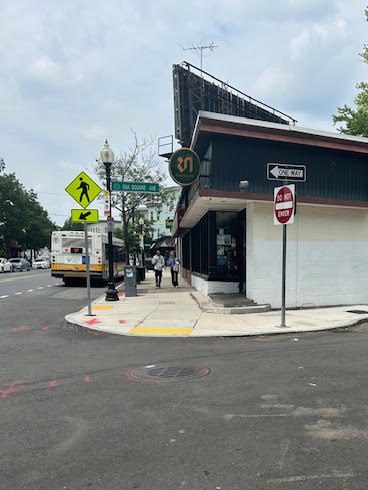
In a reply dated October 20, 2022, Bin Zou, a project manager with the MBTA's Capital Delivery office, replied that the new crosswalks' line striping "needs police detail support; however, based on our previous experience, BPD (Boston Police Department) resources are limited.
In spite of that challenge, "(the contractor) told me that they can finish all paving and striping before 11/15/2022," concluded Zou.
In a follow-up email on November 15, John Read, a BPDA transportation planner, asked Zou to confirm that the project was done.
It was not.
"I am sorry our Contractor SPS hasn’t finished yet," wrote Zou on November 28. "Because the traffic in these places is very busy and SPS (the contractor) needs the city to approve their traffic management plan and also apply police details."
Six more months passed.
Last week, in response to yet another email, the T confirmed that police were still holding up the work.
"We completely understand that the completion of line striping work is critical to everyone, especially for pedestrian safety. The line striping work at these locations has been our top priority in the past and it is now; however, MBTA and Contractor cannot get police detail support when we planned to perform this work," wrote Zou in a June 14 email.
The cops' traffic racket
Under state law, road work sites across the Commonwealth are required to hire police details to direct traffic on roadways with high traffic volumes and speeds over 45 mph.
Under a 2008 reform law, the state started allowing civilian flaggers to direct traffic on smaller, less busy roadways.
But Boston's city ordinances and police union contracts make an end-run around that reform law by requiring police details at every construction site within the city's limits.
The state law also requires governments to pay the "prevailing wage," which are wages determined in local collective bargaining agreements with police unions.
In many jurisdictions, police contracts specify much higher wage rates for flagging work at construction sites. In Boston, police working as flaggers took home $44.40 an hour in 2018.
In spite of that lucrative pay, Boston has a lot of construction sites, and fewer people who want to wear a police uniform.
"A little over 40 percent of requests for police details at work sites have been going unfilled," says Boston City Councilor Kendra Lara, who is working on reforming Boston's rules. "So that's work that’s either being delayed, or it's just happening without flaggers on site."
Lara says that the current rules also don't give the city any ability to prioritize certain work sites over others.
"Police opt into working the details. They actually get to pick what shifts they want to fill - they can go stand at a dead-end street in Roslindale if they want to. We have no control over being able to prioritize them," says Lara.
These problems also contribute to the city's out-of-control police overtime costs, says Lara.
For all these reasons, allowing civilian flaggers at construction sites, as allowed in the updated state law, is one of the city's points of negotiation for a new collective bargaining agreement with its police union.
If that succeeds, Councilor Lara plans to work with her colleagues on the City Council to repeal the corresponding city ordinance.
In the meantime, the MBTA will still be waiting for some police to show up to Washington Street in Oak Square so that its workers can finally paint some crosswalks.
It's "a perfect example of why we need an office of civilian flaggers in the City of Boston," Anna Leslie wrote in an email to StreetsblogMASS. "This current policy is preventing essential safe infrastructure from being built."
